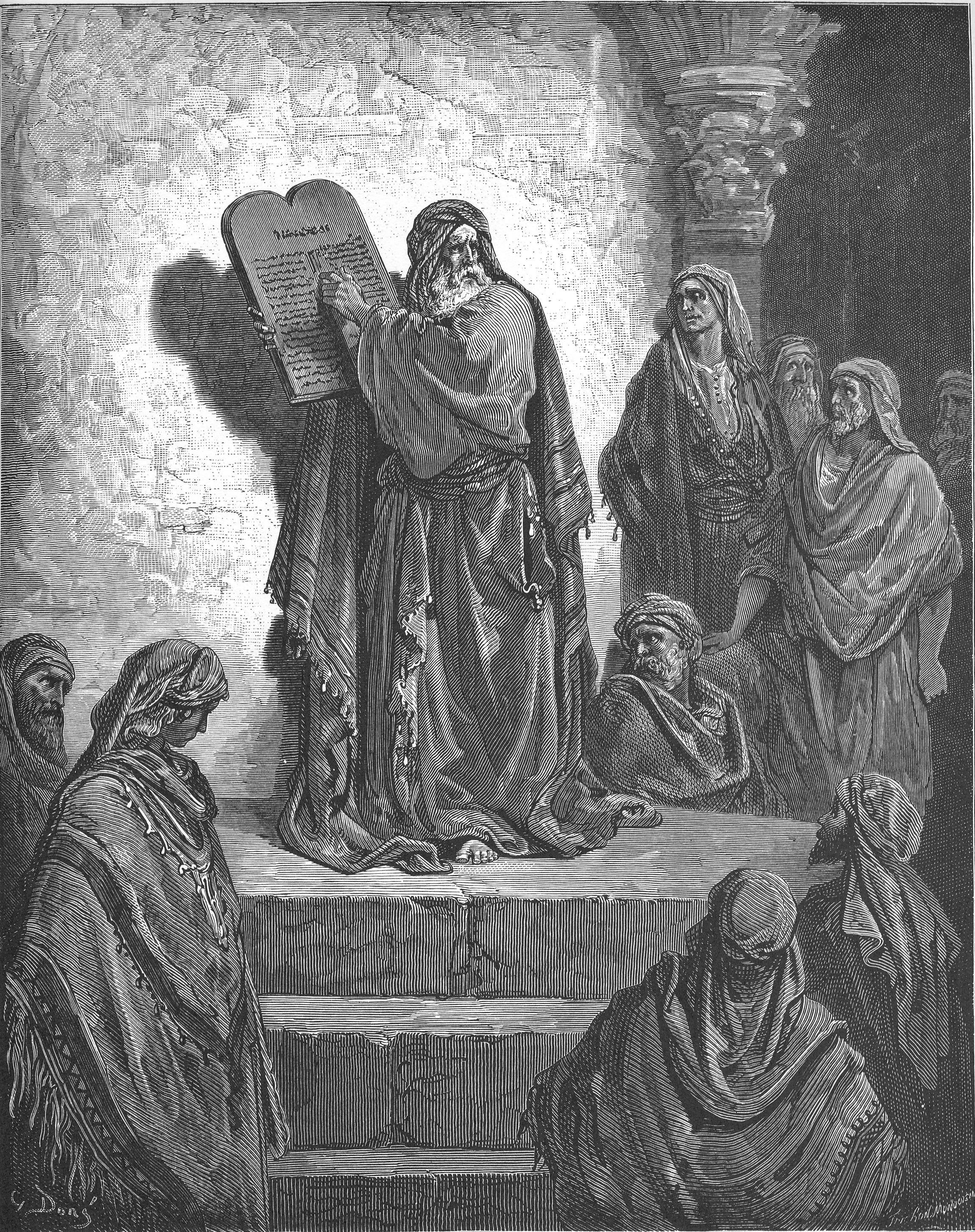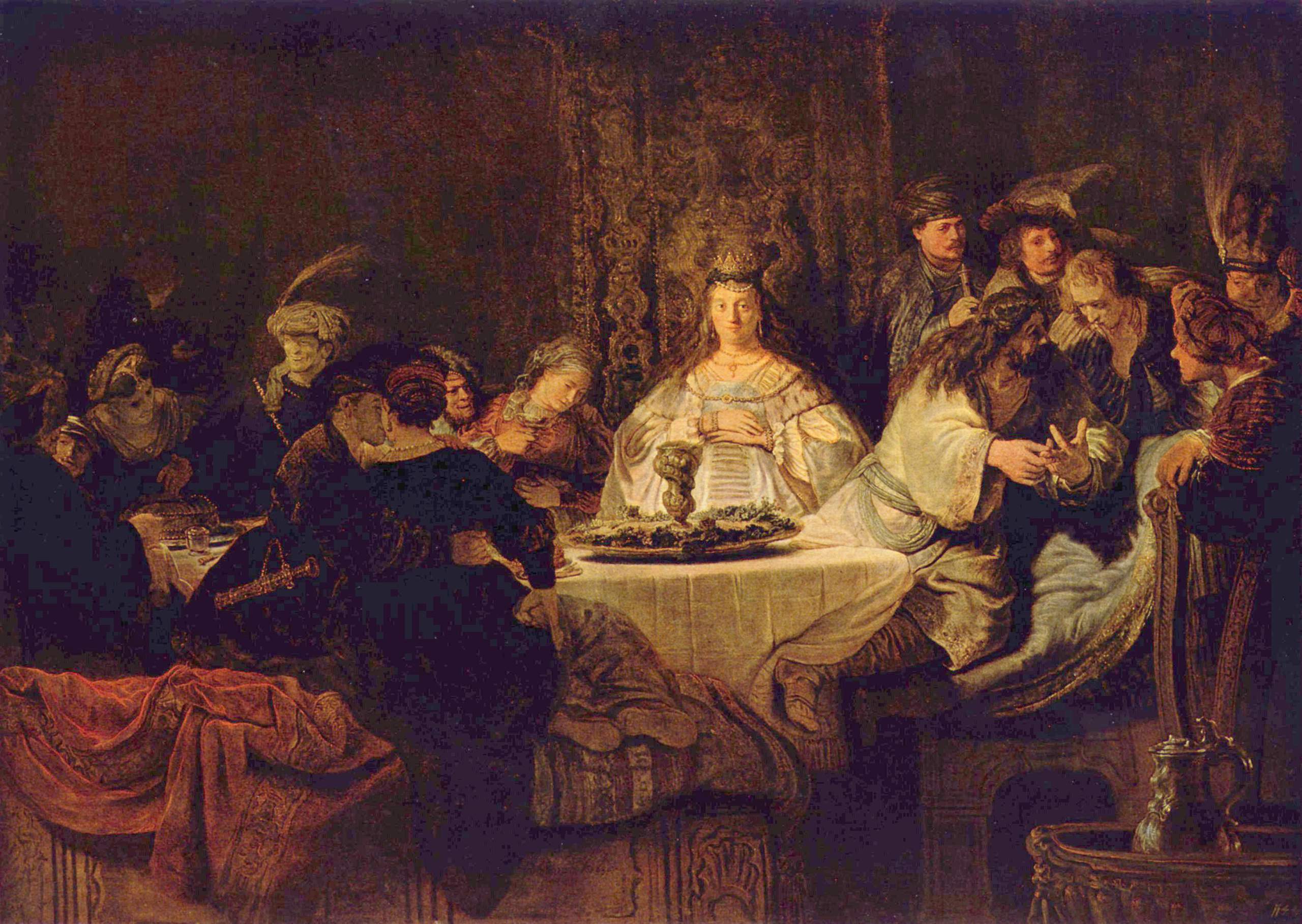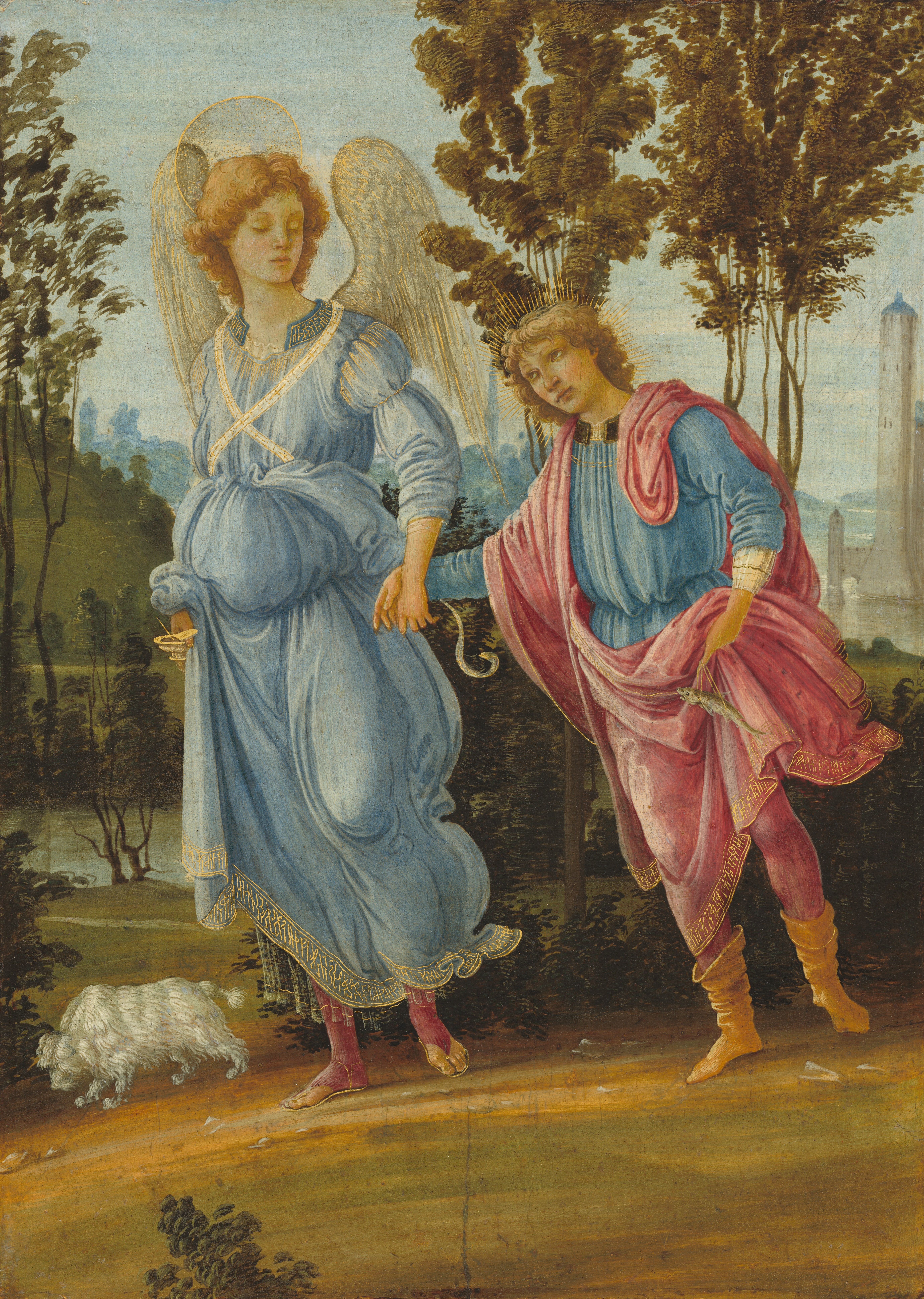|
Shecaniah
Shecaniah or Shechaniah, which means "one intimate with God", is the name of a number of characters mentioned in the Hebrew Bible. #A priest to whom the tenth lot came forth when David divided the priests (1 Chronicles 24:11). #One of the priests who were set "to give to their brethren by courses" of the daily portion (2 Chronicles 31:15). #Shechani'ah, a priest whose sons are mentioned in 1 Chronicles 3:21, 22. #Ezra 8:5. #The first of the Jews who responded to Ezra's prayer regarding the returning exiles' marriages with foreigners. #The father of Shemaiah, who repaired the wall of Jerusalem (Nehemiah 3:29). #The father-in-law of Tobiah (Nehemiah 6:18). #A priest who returned from the Babylonian captivity with Zerubbabel According to the biblical narrative, Zerubbabel, ; la, Zorobabel; Akkadian: 𒆰𒆍𒀭𒊏𒆠 ''Zērubābili'' was a governor of the Achaemenid Empire's province Yehud Medinata and the grandson of Jeconiah, penultimate king of Judah. Zerubbab ... (Nehemiah ... [...More Info...] [...Related Items...] OR: [Wikipedia] [Google] [Baidu] |
Hebrew Bible
The Hebrew Bible or Tanakh (;"Tanach" ''Random House Webster's Unabridged Dictionary''. Hebrew: ''Tānāḵh''), also known in Hebrew as Miqra (; Hebrew: ''Mīqrā''), is the Biblical canon, canonical collection of Hebrew language, Hebrew scriptures, including the Torah, the Nevi'im, and the Ketuvim. Different branches of Judaism and Samaritanism have maintained different versions of the canon, including the 3rd-century Septuagint text used by Second-Temple Judaism, the Syriac language Peshitta, the Samaritan Torah, the Dead Sea Scrolls, and most recently the 10th century medieval Masoretic Text, Masoretic text created by the Masoretes currently used in modern Rabbinic Judaism. The terms "Hebrew Bible" or "Hebrew Canon" are frequently confused with the Masoretic text, however, this is a medieval version and one of several ... [...More Info...] [...Related Items...] OR: [Wikipedia] [Google] [Baidu] |
David
David (; , "beloved one") (traditional spelling), , ''Dāwūd''; grc-koi, Δαυΐδ, Dauíd; la, Davidus, David; gez , ዳዊት, ''Dawit''; xcl, Դաւիթ, ''Dawitʿ''; cu, Давíдъ, ''Davidŭ''; possibly meaning "beloved one". was, according to the Hebrew Bible, the third king of the United Kingdom of Israel. In the Books of Samuel, he is described as a young shepherd and harpist who gains fame by slaying Goliath, a champion of the Philistines, in southern Canaan. David becomes a favourite of Saul, the first king of Israel; he also forges a notably close friendship with Jonathan, a son of Saul. However, under the paranoia that David is seeking to usurp the throne, Saul attempts to kill David, forcing the latter to go into hiding and effectively operate as a fugitive for several years. After Saul and Jonathan are both killed in battle against the Philistines, a 30-year-old David is anointed king over all of Israel and Judah. Following his rise to power, David ... [...More Info...] [...Related Items...] OR: [Wikipedia] [Google] [Baidu] |
Ezra
Ezra (; he, עֶזְרָא, '; fl. 480–440 BCE), also called Ezra the Scribe (, ') and Ezra the Priest in the Book of Ezra, was a Jewish scribe (''sofer'') and priest (''kohen''). In Greco-Latin Ezra is called Esdras ( grc-gre, Ἔσδρας). According to the Hebrew Bible he was a descendant of Sraya, the last High Priest to serve in the First Temple, and a close relative of Joshua, the first High Priest of the Second Temple. He returned from Babylonian exile and reintroduced the Torah in Jerusalem. According to 1 Esdras, a Greek translation of the Book of Ezra still in use in Eastern Orthodoxy, he was also a High Priest. Rabbinic tradition holds that he was an ordinary member of the priesthood. Several traditions have developed over his place of burial. One tradition says that he is buried in al-Uzayr near Basra (Iraq), while another tradition alleges that he is buried in Tadif near Aleppo, in northern Syria. His name may be an abbreviation of ', " Yah helps". In the ... [...More Info...] [...Related Items...] OR: [Wikipedia] [Google] [Baidu] |
Ezra 10
Ezra 10 is the tenth and final chapter of the Book of Ezra in the Old Testament of the Christian Bible, or the tenth chapter of the book of Ezra-Nehemiah in the Hebrew Bible, which treats the book of Ezra and book of Nehemiah as one book. Jewish tradition states that Ezra is the author of Ezra-Nehemiah as well as the Book of Chronicles, but modern scholars generally accept that a compiler from the 5th century BCE (the so-called "Chronicler") is the final author of these books. The section comprising chapters 7 to 10 mainly describes the activities of Ezra the scribe and the priest. This chapter and the previous one deal with the problem of intermarriage, especially the solution of it, ending with a list of those who sent away their "foreign" wives and children; a somber note which finds relief in the Book of Nehemiah, as the continuation of the Book of Ezra. Text This chapter is divided into 44 verses. The original text of this chapter is in Hebrew language. Textual witness ... [...More Info...] [...Related Items...] OR: [Wikipedia] [Google] [Baidu] |
Interfaith Marriage In Judaism
Interfaith marriage in Judaism (also called mixed marriage or intermarriage) was historically looked upon with very strong disfavor by Jewish leaders, and it remains a controversial issue among them today. In the Talmud and all of resulting Jewish law until the advent of new Jewish movements following the Jewish Enlightenment, the "Haskala", marriage between a Jew and a gentile is both prohibited, and also void under Jewish law.'' Kiddushin'' 68b A 2013 survey conducted in the United States by the Pew Research Center’s Religion & Public Life Project found the intermarriage rate to be 58% among all Jews and 71% among non-Orthodox Jews. Later laws and rulings The Talmud holds that a marriage between a Jew and a non-Jew is both prohibited and also does not constitute a marriage under Jewish law. Furthermore, a Jewish man has no recognized paternal or parental relation to any offspring resulting from a relationship with a gentile woman. Christian rulers regarded unions between Je ... [...More Info...] [...Related Items...] OR: [Wikipedia] [Google] [Baidu] |
Jerusalem
Jerusalem (; he, יְרוּשָׁלַיִם ; ar, القُدس ) (combining the Biblical and common usage Arabic names); grc, Ἱερουσαλήμ/Ἰεροσόλυμα, Hierousalḗm/Hierosóluma; hy, Երուսաղեմ, Erusałēm. is a city in Western Asia. Situated on a plateau in the Judaean Mountains between the Mediterranean Sea, Mediterranean and the Dead Sea, it is one of the List of oldest continuously inhabited cities, oldest cities in the world and is considered to be a holy city for the three major Abrahamic religions: Judaism, Christianity, and Islam. Both Israelis and Palestinians claim Jerusalem as their Capital city, capital, as Israel maintains its primary governmental institutions there and the State of Palestine ultimately foresees it as its seat of power. Because of this dispute, Status of Jerusalem, neither claim is widely recognized internationally. Throughout History of Jerusalem, its long history, Jerusalem has been destroyed at least twice, Sie ... [...More Info...] [...Related Items...] OR: [Wikipedia] [Google] [Baidu] |
Tobiah
Tobias is the transliteration of the Greek which is a translation of the Hebrew biblical name he, טוֹבִיה, Toviyah, JahGod is good, label=none. With the biblical Book of Tobias being present in the Deuterocanon/Apocrypha of the Bible, Tobias is a popular male given name for both Christians and Jews in English-speaking countries, German-speaking countries, the Low Countries, and Scandinavian countries. In English-speaking countries, it is often shortened to Toby. In German, this name appears as Tobias or Tobi; in French as Tobie; and in Swedish as Tobias or Tobbe. Tobias has also been a surname. In other languages * Danish, Norwegian, German, Dutch, Swedish, Portuguese: Tobias * Amharic: ጦቢያ (T’obīya) * Catalan: Tobies * Czech: Tobiáš, Tobias * Croatian: Tobijaš * Finnish: Topias, Topi * French: Tobie * Greek: Τωβίας ''(Tobías)'' * Hebrew: Tovia, Tuvya * Hungarian: Tóbiás * Italian: Tobia (name) * Lithuanian: Tobijas * Polish: Tobiasz * Russian: � ... [...More Info...] [...Related Items...] OR: [Wikipedia] [Google] [Baidu] |
Babylonian Captivity
The Babylonian captivity or Babylonian exile is the period in Jewish history during which a large number of Judeans from the ancient Kingdom of Judah were captives in Babylon, the capital city of the Neo-Babylonian Empire, following their defeat in the Jewish–Babylonian War and the destruction of Solomon's Temple in Jerusalem. The event is described in the Hebrew Bible, and its historicity is supported by archaeological and extra-biblical evidence. After the Battle of Carchemish in 605 BCE, the Babylonian king Nebuchadnezzar II besieged Jerusalem, which resulted in tribute being paid by the Judean king Jehoiakim. In the fourth year of Nebuchadnezzar II's reign, Jehoiakim refused to pay further tribute, which led to another siege of the city in Nebuchadnezzar II's seventh year (598/597 BCE) that culminated in the death of Jehoiakim and the exile to Babylonia of his successor Jeconiah, his court, and many others; Jeconiah's successor Zedekiah and others were exiled when Nebuch ... [...More Info...] [...Related Items...] OR: [Wikipedia] [Google] [Baidu] |
Zerubbabel
According to the biblical narrative, Zerubbabel, ; la, Zorobabel; Akkadian: 𒆰𒆍𒀭𒊏𒆠 ''Zērubābili'' was a governor of the Achaemenid Empire's province Yehud Medinata and the grandson of Jeconiah, penultimate king of Judah. Zerubbabel led the first group of Jews, numbering 42,360, who returned from the Babylonian captivity in the first year of Cyrus the Great, the king of the Achaemenid Empire.' The date is generally thought to have been between 538 and 520 BC. Zerubbabel also laid the foundation of the Second Temple in Jerusalem soon after. In all of the accounts in the Hebrew Bible that mention Zerubbabel, he is always associated with the high priest who returned with him, Joshua (Jeshua) son of Jozadak (Jehozadak). Together, these two men led the first wave of Jewish returnees from exile and began to rebuild the Temple. Old Testament theologian John Kessler describes the region of Judah as a small province that contained land extending 25 km from Jerusalem a ... [...More Info...] [...Related Items...] OR: [Wikipedia] [Google] [Baidu] |
Books Of Chronicles People
A book is a medium for recording information in the form of writing or images, typically composed of many pages (made of papyrus, parchment, vellum, or paper) bound together and protected by a cover. The technical term for this physical arrangement is ''codex'' (plural, ''codices''). In the history of hand-held physical supports for extended written compositions or records, the codex replaces its predecessor, the scroll. A single sheet in a codex is a leaf and each side of a leaf is a page. As an intellectual object, a book is prototypically a composition of such great length that it takes a considerable investment of time to compose and still considered as an investment of time to read. In a restricted sense, a book is a self-sufficient section or part of a longer composition, a usage reflecting that, in antiquity, long works had to be written on several scrolls and each scroll had to be identified by the book it contained. Each part of Aristotle's ''Physics'' is called a bo ... [...More Info...] [...Related Items...] OR: [Wikipedia] [Google] [Baidu] |







